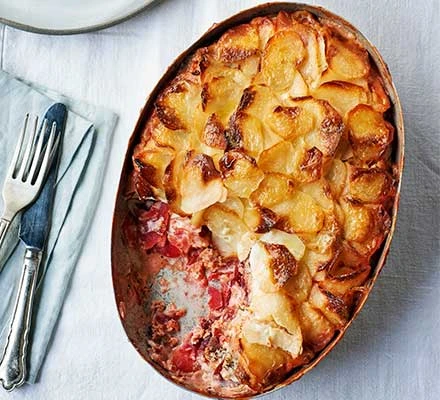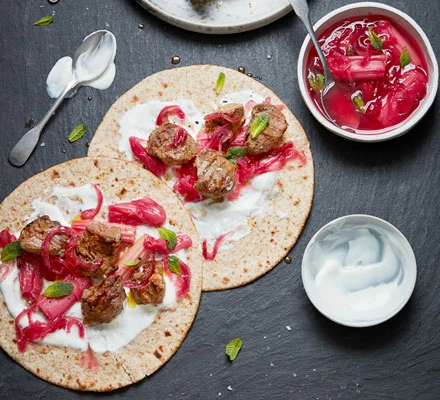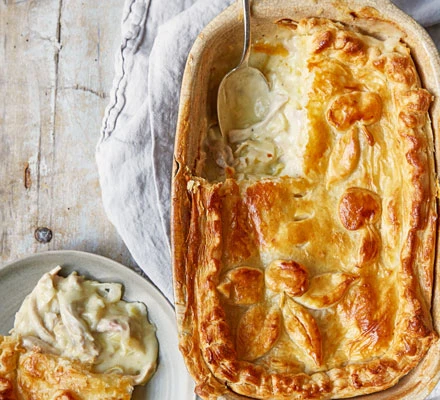Mediterraneanism - it's all Elizabeth David's fault
- rosemary
- Aug 11, 2025
- 7 min read
Updated: Aug 12, 2025
“While I roast as many Mediterranean vegetables as the next person, I worry about what the ‘Mediterraneanisation’ of cooking is doing to the native home-cooking of many countries.” Diana Henry

Casting around for inspiration the other day, I came across the above quote in another of my 'ideas' lists, and it struck a chord within me. It was a cold day, a glorious cold day in fact, because the sky was blue and the sun was shining - perfect for walking, and sitting near a cosy open fire in the evening, being something to really look forward to. As it is today. And so on days like this it is tempting to cook something summery, something Mediterranean - because I think most of us have dreams of Mediterranean summers that take us away from the cold. Even more so when the day is just grey and miserable. And glorious though the Australian beaches are, here in the south the water is freezing and in the north it is dangerous - crocodiles and stinging jelly fish.
The Mediterraneans of course, have been eating their Mediterranen foods for centuries, but even there there have been huge changes in their traditions - tomatoes, beans, pasta ... But then came Elizabeth David, who had spent most of the war years, and her romantic youth, in various Mediterranean lands. On return to cold and very dreary, Britain where rationing was still in place and olive oil could only be bought in the chemist's, she decided to make the Brits dream, like her, of a lost paradise, even though a large portion of the ingredients required were not available. But who could not be tempted by words like these?

“The ever-recurring elements in the food throughout these countries are the oil, the saffron, the garlic, the pungent local wines; the aromatic perfume of rosemary, wild marjoram and basil drying in the kitchens; the brilliance of the market stalls piled high with pimentos, aubergines, tomatoes, olives, melons, figs and limes; the great heaps of shiny fish, silver, vermilion or tiger-striped, and those long needle fish whose bones so mysteriously turn out to be green.” Elizabeth David
And those of us who were lucky enough to live in trendy London at the height of its trendiness, were indeed able to access some of them. The British had also begun to travel to the Mediterranean ourselves in the increasingly prosperous 50s and 60s.. There were aeroplanes, trains and ferries across the channel - package holidays and camping. So we all fell in love with the food, and started cooking it at home - thanks to Elizabeth David and her culture changing A Book of Mediterranean Food.

"it inspired a revolution whose happy aftermath can be seen in the food aisles of Waitrose, Sainsbury and Tesco, and perhaps even in the popularity of MasterChef and The Great British Bake Off." Robert McCrum/The Guardian
It can still be seen in our supermarket aisles, although perhaps here in Australia there are more Asian foods as well - particularly if you live in an area with a large Asian/Australian population. For modern farming and transport techniques ensure that virtually any food from anywhere in the world is available at any time of the year. Particularly here in Australia.
It's not just the availability of the food however, it's the celebrity chefs who cook them as well, an increasing number of whom come from the Mediterranean these days.

Then later on there was Delia, who, in her Summer Cooking introduced us to the notion of roasting those typical Mediterranean vegetables - eggplant, zucchini, capsicum, tomato with lashings of olive oil, garlic and Mediterranean herbs. It was one of her most popular recipes, and I'm pretty sure that almost anyone interested in cooking roasts these - and now, other vegetables in the oven. I mean it's super easy and super deliciousl isn't it? And you can use those vegetables in so many other ways like Delia's own Roasted vegetable couscous salad with harissa-style dressing.

The foodie newsletters that I read are either based in the UK or America - the Northern Hemisphere, where it is summer and hot at the moment. I think when I opened the last Ottolenghi newsletter which was all about ice-cream - the ultimate summer food - publicising their latest business venture of doubtlessly expensive ice-creams - it was almost the last straw for me. Yes it is nice to dream of summer and the Mediterranean countries (France and Italy in my case) that I love, but eventually when all you read about is summer food you begin to turn to gloom. It's not a happy dream anymore, but a disappointed one. I'm not there where it's warm, I'm here in the cold and summer is still at least three, probably four months away.

Not that these particular ice-creams were very Mediterranean - Madagascar vanilla and miso salted caramel for heaven's sake. But it was ice-cream - and it made me think of my absolute favourite cassis (blackcurrant) sorbet which I shall probably never taste again. Here I am tasting my last one - cassis in Cassis - way back in 2017 - where even the local ice-cream vendor did not know why the two words were pronounced differently.
But back to my topic of the day as I sit here with two layers of jumpers on and a rather annoying head cold - those now almost annoying newsletters. Two more examples - The Happy Foodie had a special post on the best summer tomato recipes from Penguin cookbooks - of which - Orzo pasta, spicy tomato sauce and feta - Clare Lattin and Tom Hill was one. Now how more modern Mediterranean can you get really? And over there in America, Deb Perelman was also doing tomatoes, with that beautiful Mathilde's tomato tart, which she introduces with the words: "A gorgeous peak-summer tomato tart that tastes the way I imagine a vacation in France would feel right now". Aargh!
So perhaps you now understand why Diana Henry's comments struck a chord. There are so many other cuisines in the world, and besides, even the Mediterranean countries have a winter - perhaps more so on the northern coast than the south, but still. It might be warmer than winter in Britain, but it's still winter. I learnt at school that Melbourne, in fact, has a Mediterranean climate - and here I am in two layers of warm clothing. Nobody ever really tells us what traditional winter foods in the Mediterranean are. I say traditional because of course today they probably just go on eating the same summery dishes, because they can still get the ingredients. As we do here. But surely there are traditional winter dishes - a topic for another time.
As is the Mediterranean diet which is now a UNESCO Intangible cultural heritage thing.

The very word Mediterranean is so romantic isn't it? It's loaded with eons of cultural history, beautiful landscapes, beautiful people and wonderful stories of every kind. "Holiday at home with Mediterranean-inspired recipes that will conjure up memories of sun-soaked getaways" says the BBC as a lead-in to a collection of Mediterranean recipes one of which is this Griddled chicken with quinoa Greek salad. Quinoa? Isn't that South American? Those words are typical of what Tim Hayward calls 'wide-eyed romantic twaddle' and which he blames for 'British chefs' obsession with Mediterranean cookery' . Something he sees as coming directly from Elizabeth David and which has also led to:
"elevating the idealised diet of a poorly defined area which just happens to be fashionable with the health police does bugger all to add to the richness of our shared heritage."
For 'our' - in this case the British - shared heritage - has its own rich range of ingredients - some of which are common to both traditions, and some of which are unique to colder lands. As, of course, do other rather more northern lands - or tropical ones come to that. In fact any other climate and cultural zone of the world other than the Mediterranean.
It is interesting though isn't it that Mediterranean food - and particularly Italian food - is so popular all around the world? Is it the Mediterranean, particularly Italian and Greek diaspora; the romantic and colourful history of the region which has featured so strongly in what we call Western civilisation; a dream of everlasting holidays in the sun or simply because there is something about the food that is so darn tasty that you can find pizza and pasta just about anywhere in the world?
So what indeed do the British and other northerners have to offer? Well Nigel who introduced Diana Henry's book on autumn and winter food - Roast figs, sugar snow - says it all beautifully - of course:
"The cooking can be glorious, with pots of heart-warming soup to make and slow-cooked suppers to bake quietly in the oven; there are sweet vegetables to roast and hearty casseroles, and all manner of cakes and hot puddings to be made. ...
The flavours of the north ring out like church bells - juniper and caraway, beetroot and vodka, soured cream and cardamom."

I'll end with some of the things that Diana Henry herself suggests that we try although she does also do Mediterranean - herewith an example - Roast Tomatoes, Fennel and Chickpeas with Preserved Lemons, Coriander and Honey (Mud Australia) because, of course, it's summer in England sometimes too, and no we just can't get away from the Mediterranean influence - because we love it.
And besides, as she says:
"You cannot stop cross-fertilization of dishes and ideas in food. Many ingredients that were once 'new' - especially spices - have become incorporated into the food of countries thousands of miles away from their source ... I still travel to far-flung places from my kitchen, but I don't take what is on our doorstep for granted ... It's natural to undervalue or ignore what we have, but to do so means we miss out on huge riches." Diana Henry
And for winter? Romanian bean, smoked bacon and soured cream soup (The Guardian); Gratin of fresh and smoked salmon, beetroot, potatoes and dill (BBC Good Food); Russian shashliks with rhubarb sauce (BBC Good Food); Chicken, leek and cider pie (BBC Good Food) and Danish roast pork with pickled prunes and sweet cucumber (The Guardian)
Now which shall I make first?
Apologies for the meandering. I feel I have not really said what I meant to - but I'll make the excuse that my brain is a bit blurry with this winter cold. That soup really looks tempting.
YEARS GONE BY
August 11
2023 - Nothing
2022 - Winter jam
2021 - Rock cakes
2020 - Missing
2016 - Coles Magazine on my iPad












Elizabeth David, the Meditarranean Sea, the sun shining, camping with the French. Garlic, baguettes. Salade de tomate. Tous Merveilleuses! 🫠